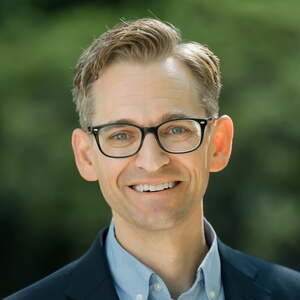When you step inside Biola‚Äôs impressive new Mosaic Cultural Center, the first thing you notice is all the wood. It‚Äôs everywhere you look: walls, floors, doorframes, cabinets, tables, desks, chairs. And none of it quite matches. On closer inspection, you find that there‚Äôs a lesson in the lumber. It‚Äôs been brought in from the far reaches of the globe ‚ÄĒ six different continents ‚ÄĒ bearing such names as Asian paldao, Hawaiian koa and Australian figured walnut. And though there are many different shades, grains, tones and textures, somehow they all work together in beautiful harmony.
The wood offers the center‚Äôs visitors a powerful illustration of the vastness and diversity of both God‚Äôs creation and God‚Äôs people ‚ÄĒ fitting for a campus space devoted to celebrating and exploring cultural diversity. It serves as a visual reminder that Biola students come from many different nations, and are called to go to all nations for the cause of Christ. That international call has been at the heart of Biola‚Äôs mission for more than 100 years, and it‚Äôs a prominent theme in the vision document for the next 10 years, the University Plan. Over the next decade and beyond, one of Biola‚Äôs key aspirations is to cultivate competent and courageous graduates who are prepared to meet tomorrow‚Äôs challenges as cross-cultural, globally aware Christians. Biola wants to equip these students to work across cultures and continents, in any vocation to which God has called them.
In that spirit ‚ÄĒ and perhaps a bit like the wood on the walls ‚ÄĒ this issue of Biola Magazine offers a small glimpse into how God is currently using Biolans in diverse settings all around the world. Our spotlights graduates on each continent (with apologies to Antarctica, unfortunately) who have followed the Lord‚Äôs call, be it in pastoral ministry, business, journalism or art. These remarkable alumni represent tens of thousands more who are impacting the world for the Lord Jesus Christ in untold ways every day.
Elsewhere in this issue, President Barry H. Corey writes about and gives a look at his travels to build overseas partnerships; professor Andy Draycott shares about the he brings to his students; and alumnus Lawrence Tong tells about his of the prominent missions organization Operation Mobilisation.
Seeing all of these international stories together, I‚Äôm reminded of something Biola‚Äôs late President Emeritus Clyde Cook often used to say. Quoting diplomat George Macartney‚Äôs 1773 famed observation that ‚Äúthe sun never sets‚ÄĚ on the British Empire, Cook noted that the same was true of Biola alumni: ‚ÄúEvery minute of every day, the impact of ļŕ›ģ ”∆Ķ is being felt somewhere in the world.‚ÄĚ
May that impact continue to grow, all for the glory of God.
 ļŕ›ģ ”∆Ķ
ļŕ›ģ ”∆Ķ
.jpg)

